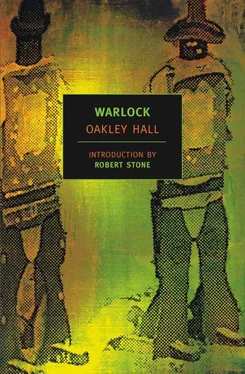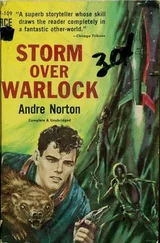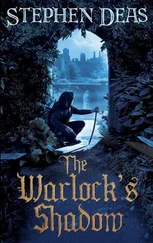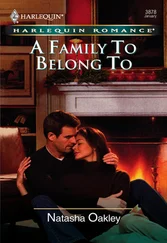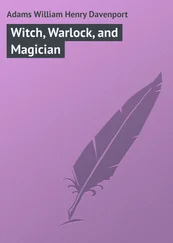“It is the lot of the human race,” the judge said. He raised his bottle and shook it. Staring at the bottle he said, “And it is terrible past the standing of it. But I have here the universal solvent. For wine is the color of blood and the texture of tears, and you can drink it to warm your belly and piss it out to get rid of it. And forget the whole damned mess that is too much for any man to face.”
“That’s not wine,” Jameson said. “That’s raw whisky.”
The judge looked at him with a bleared eye. “I will sleep in a cask of raw whisky,” he went on. “Wake me up and pump me out when everyone is dead.” His voice shook, and his hand shook, holding the bottle. “What are deputies to me?” he said hoarsely. “Deputies or marshals. They are nothing, and I will not be a hypocrite to sentimentality when I can drink myself above it all. Wake me up when they have killed each other off! Miner and superintendent, vigilante and regulator, deputy and marshal. They are as dead leaves falling and nothing to me. Nothing!” he shouted. He banged the whisky bottle down on the table top, raising it high and crashing it down again, his face twisting and twitching in drunken horror. “Nothing!” he shouted. “Nothing! Nothing!”
They watched him in awe at his grief, as he continued to cry “Nothing!” and bang the bottle. The Mexican’s swollen, sleepy face appeared, a square below and to the right of that of Jameson, who whispered, “Listen to the dommed old bastard go!”
56. MORGAN LOOKS AT THE CARDS
I
SITTING in the cane-bottomed rocker in the shade on the hotel veranda, Morgan sat watching Warlock in the morning. There were not many people on the street: a prospector with a beard like a bird’s nest sat on the bench before the Assay Office; a white-aproned barkeep swept the boardwalk before the Billiard Parlor; a Cross-Bit wagon was pulled up alongside the Feed and Grain Barn, and Wheeler and a Mexican carried out plump bags which one of Burbage’s sons stacked into the wagon-bed. To the southwest the Dinosaurs shimmered in the sun. They seemed very close in the clear air, but improbably jagged and the shadows sharply cut, so that they had a painted look, like a fanciful theater backdrop. The Bucksaws, nearer, were smooth and brown, and he watched a wagon train mounting the circuitous road to the Sister Fan mine.
He stretched hugely, sighed hugely. Inside the dining room behind him he could hear the tinny clink and clatter of dishes and cutlery; it was a pleasant sound. He watched Mrs. Egan bustling down Broadway with her market basket, neat and crisp in starched light-blue gingham, her face hidden in a scoop bonnet. He could tell from the way she carried herself that she was daring any man to make a remark to her .
He smiled, strangely moved by the fresh, light color of her dress. He had found himself thus susceptible to colors for the last several days. He had admired the smooth, dark, smoked tan of the burnt-out Glass Slipper yesterday, and the velvet sudden black of the charred timbers in it. Now on the faded front of the Billiard Parlor, where Sam Brown had taken his sign down to have it repainted, there was a rectangle of yellow where the paint had been hidden from the sun; yellow was a fine color. He had begun remembering colors, too; in his mind’s eye he could see very vividly the color of the grass in the meadows of North Carolina, and the variety of colors of the trees in autumn — a thousand different shades; he remembered, too, the trees in Louisiana, the sleek, warm, blackish, glistening green of the trunks after it had rained and the sun had come out; and the trees in Wyoming after an ice storm in the sun, when all the world was made of crystal, and all seemed fragile and still; and he remembered the sudden red slashes of earth in west Texas where the dull plains began to turn into desert country.
“Pardon me if I take this other chair here, sir.” It was the drummer who had come to town yesterday, and had the room across the hall from his. He sat down. He wore a hard-hat, and a tight, cheap, checked suit. He was smooth-shaven, with heavy, pink dewlaps.
“Fine morning,” the drummer said heartily, and offered him a cigar, which he took, smelled, and flung out into the dust of the street. He took one of his own from his breast pocket, and turned and stared the drummer in the eye until he lit it for him.
“I wonder if you could point out Blaisedell for me, if he comes by,” the drummer said, not so heartily. “I’ve never been in Warlock before and we’ve heard so much of Blaisedell. I swore to Sally — that’s my wife — I’d be sure I saw Blaisedell so I could tell her—”
“Blaisedell?”
“Yes, sir, the gunman,” the drummer said. He lisped a little. “The fellow that runs things here. That killed all those outlaws in the corral there by the stage depot. I stopped in there yesterday when I got in for a look around.”
“Blaisedell doesn’t run things here.” He stared the drummer in the eye again. “ I do.”
The drummer looked as though he were sucking on the inside of his mouth.
“You can tell your wife Sally you saw Tom Morgan,” he said. He felt pleased, watching the fright in the drummer’s face, but his stomach contracted almost in a cramp. He flicked his cigar toward the drummer’s checked trousers. “Don’t go around here saying Clay Blaisedell runs Warlock.”
“Yes, sir,” the drummer whispered.
The water wagon passed on Broadway, Bacon sitting hunched on the seat, his whip nodding over the team. The rust on the tank shone red with spilled water. The red of rust was a fine color. When the water wagon had passed he saw Gannon coming toward him under the arcade.
“Get out of here,” he said to the drummer. “Here comes another one that thinks he runs Warlock.”
The drummer rose and fled; Morgan laughed to hear the clatter of his boots diminishing, watching Gannon coming on across Broadway. The sun caught the star on his vest in a momentarily brilliant shard of light. He came on up on the veranda and sat down in the chair the drummer had vacated.
“Morning, Morgan,” he said, and nervously rubbed his bandaged hand upon his leg.
“Is, isn’t it?” He crossed his legs and yawned.
Gannon was frowning. “Going to be hot,” he said, as though he had just thought it out.
“Good bet.” He nodded and looked sideways at Gannon’s lean, strained face, his bent nose and hollow cheeks. He touched a finger gently to his own cheek, waiting for Gannon to get his nerve up.
“I’ve found two of them saw you coming back,” Gannon said finally, “the morning after McQuown was killed.”
He didn’t say anything. He flicked the gray ash from his cigar.
“I heard you when you went by me,” Gannon said, staring straight ahead. “Off to the east of me a way. I couldn’t say I saw you, though.”
“No?”
“I’d like to know why you did it,” Gannon said, almost as though he were asking a favor.
“Did what?”
Gannon sighed, grimaced, rubbed the palm of his hand on his leg. The butt of his Colt hung out, lop-eared, past the seat of his chair; if he wanted to draw it he would have to fight the chair like a boa constrictor. “I think I know why,” he went on. “But it would sound pretty silly in court.”
“Just leave it alone, Deputy,” Morgan said gently.
Gannon looked at him. One of his eyes was larger than the other, or, rather, differently shaped, and his nose looked like something that had been chewed out of hard wood with a dull knife. It was, in fact, very like the face of one of those rude Christos carved by a Mexican Indio with more passion than talent. It was a face only a mother could love, or Kate.
Читать дальше
